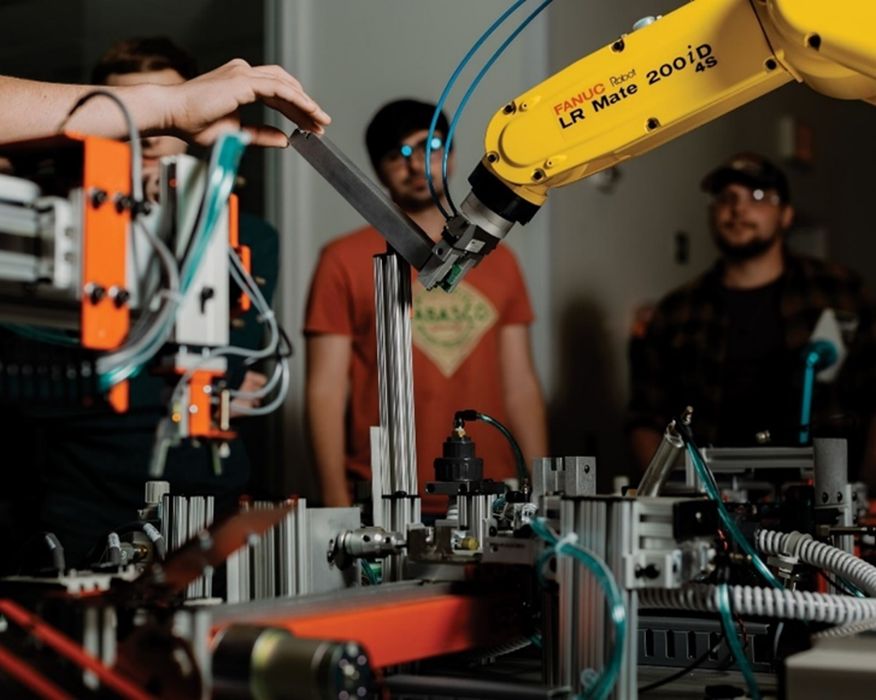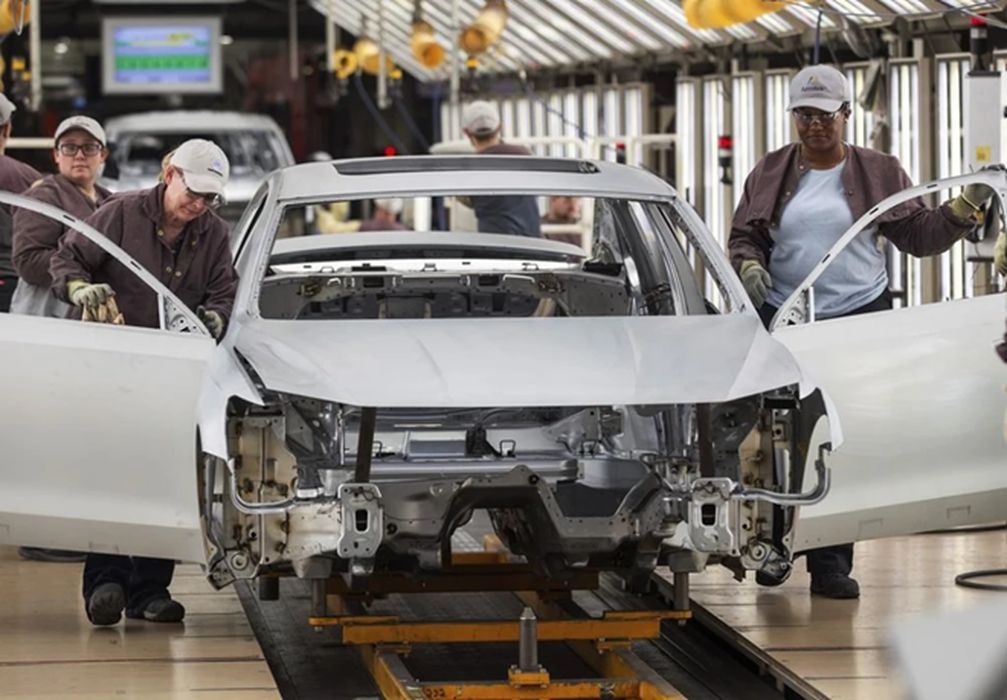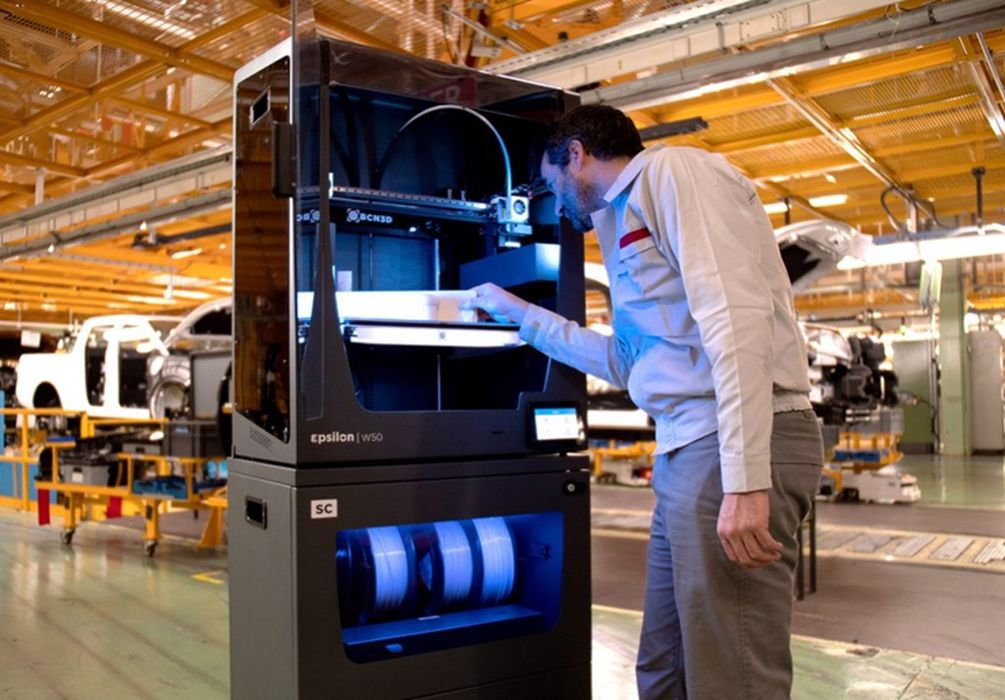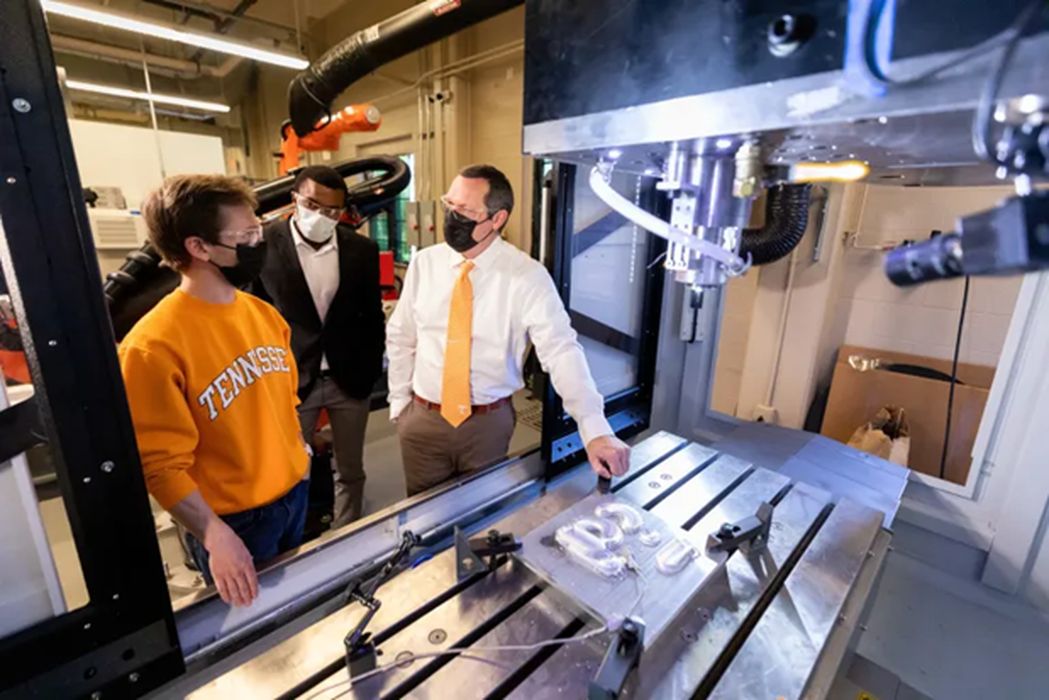
Charles R. Goulding and Preeti Sulibhavi discuss how the state of Tennessee responded to ongoing labor shortages by way of technical training programs.
As the U.S. utilizes massive funding under the CHIPS and Science Act, the Inflation Reduction Act (IRA) and the Trillion Dollar Infrastructure Bill, it is apparent that manufacturing labor shortages are a serious constraint.
Tennessee is already a leading auto manufacturer and has made a concerted effort to train a new supply of skilled manufacturing workers.
In a game of technical worker shortage “catchup,” the Tennessee College of Applied Technology campus in Smyrna is a unique setting where students have direct access to employer pipelines for major automakers such as Nissan Motor Co. One classroom looks more like an auto body shop, and another has robots operating equipment that are twice the height of the instructors. Tennessee has recently poured US$1 billion into the college’s collaboration with businesses in the region.

Electric vehicle (EV) sales are expected to skyrocket from last year’s numbers. In 2022, 760,000 EVs were sold – in 2023, the number is expected to be about 1.5 million (almost double). Ford has received US$9.2 billion in federal funding this year to build three EV factories in Kentucky and Tennessee. In 2022, Volkswagen began manufacturing its EVs in Tennessee and is also making a push to train technical employees that will be needed to fill new jobs in the area.
Tennessee Colleges of Applied Technology have offered a higher number of workforce-training programs since the pandemic, and more students are signing up for apprenticeships at local manufacturers. This is an important mix of balancing theory with real-life applications for students
Tennessee and 3D Printing
Some of the auto manufacturers setting up shop in Tennessee already have extensive 3D printing expertise. Nissan, for example, has been implementing global 3D printing solutions in recent years.
Nissan’s additive manufacturing laboratory in Spain is equipped with a mechanical farm of four BCN3D printers, which offer proven reliability and can run all day and night to meet Nissan’s intense manufacturing schedules. The printers incorporate an Independent Dual Extrusion (IDEX) system, which means that Nissan can print two identical components at the same time, in turn, doubling productivity.
By printing some of these parts in-house with 3D printers, Nissan has cut the time of designing, refining and producing parts from one week to just one day and slashed costs by 95%. Using CAD applications, including Autodesk Inventor and Siemens NX, the Nissan team has adapted its entire design process to integrate 3D printing and has found it to be easier than a mechanical one.

Institutions of higher education in Tennessee are getting a jump start on 3D printing applications for EVs. The University of Tennessee’s Knoxville campus has a very 3D printing-oriented aerospace program.
Students in both the undergraduate and graduate aerospace programs can translate their designs into physical, three-dimensional prototypes thanks to the University’s Fab Lab which houses FDM and SLA 3D printers. The printers are either Formlabs, Stratasys, or Lulzbot brands, where the user is generally responsible for all tasks and is in full control, with all available 3D printing options available in each class of printers.
The Hybrid Autonomous Manufacturing, Moving from Evolution to Revolution (HAMMER) Engineering Research Center at the University of Tennessee (UT) is focused on developing and deploying highly complex, intelligent and autonomous manufacturing systems and educating the future workforce at the same time.

HAMMER, led by Ohio State University, is a multi-institutional program that involves other universities including Northwestern University and it includes 70 collaborating industry, educational and technical organizations all ready and willing to help implement new manufacturing technologies for agile, high performance and high-quality parts.
UT’s work on HAMMER projects will integrate expertise from its Tickle College of Engineering and College of Arts and Sciences, with faculty and students representing the Departments of Mathematics, Mechanical, Aerospace, and Biomedical Engineering, as well as Nuclear Engineering, and Industrial and Systems Engineering.
Schmitz said the initial HAMMER investments from the National Science Foundation (NSF) and others will be leveraged to invigorate US manufacturing. The initial investment for five years amounted to US$26 million with a renewal option available.
The Research & Development Tax Credit
The now permanent Research and Development (R&D) Tax Credit is available for companies developing new or improved products, processes and/or software.
3D printing can help boost a company’s R&D Tax Credits. Wages for technical employees creating, testing and revising 3D printed prototypes can be included as a percentage of eligible time spent for the R&D Tax Credit. Similarly, when used as a method of improving a process, time spent integrating 3D printing hardware and software counts as an eligible activity. Lastly, when used for modeling and preproduction, the costs of filaments consumed during the development process may also be recovered.
Whether it is used for creating and testing prototypes or for final production, 3D printing is a great indicator that R&D Credit eligible activities are taking place. Companies implementing this technology at any point should consider taking advantage of R&D Tax Credits.
Conclusion
With well-publicized labor force constraints, US states need to come up with policies that support manufacturing skills training. Tennessee confronted this challenge head on. The 3D printing industry needs to be part of this comprehensive technical program.
